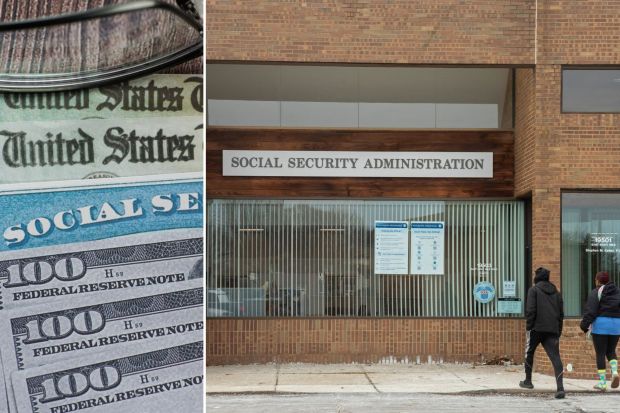
A beneficiary of the Social Security program has encountered significant delays in receiving payments due to the agency’s refusal to process a crucial direct deposit change. The Social Security Administration (SSA) has implemented a new regulation that restricts beneficiaries from altering their direct deposit information online, requiring in-person appointments instead. This policy change means the recipient will wait approximately two months to resolve the issue, causing frustration among many users.
The SSA’s recent decision appears to stem from ongoing efforts to enhance security and combat fraud, particularly related to direct deposit transactions. According to the agency, fraud connected to phone-based changes to bank account details has become increasingly prevalent. As a result, the SSA is encouraging beneficiaries to visit local offices in person for account adjustments, reversing previous policies that allowed such changes to be made over the phone.
One affected beneficiary shared their experience on Reddit, explaining how they attempted to redirect their Social Security payments to a new bank account through the SSA’s website but faced rejection. They were informed that an in-person appointment was necessary, with the earliest availability scheduled for mid-October. The user expressed their frustration, asking, “Any insight as to why I can’t make that simple change online?”
Responses from other users on the platform suggested various reasons for the account modification issue. One user noted that if the beneficiary was due to receive their payment during the week of August 25 through 29, the SSA might have prevented the change due to the imminent deposit. They explained, “They can’t update the system in the remaining time. I’ve read it can easily take 30 days to get updated.”
Another user pointed out that individuals receiving Supplemental Security Income (SSI) or Disability Insurance (SSDI) cannot change their direct deposit information online if a fraud block is on their record. They also indicated that some online banks, such as Chime or Green Dot, may contribute to the denial of changes, as these institutions have been flagged for high levels of fraudulent account creation.
Changes to Direct Deposit Policies
The SSA’s tightening of regulations has led to a significant rollback of its telephone services. Previously, beneficiaries could verify their identity through a series of questions, but this practice is no longer in place. Now, individuals must either access their my Social Security account online to verify their identity or visit an SSA office in person to make any direct deposit changes.
To further enhance security measures, the SSA will introduce a new optional authentication PIN feature this month. Beneficiaries can use this PIN, accessible through their my Social Security accounts, to authenticate their identity quickly when contacting the SSA’s toll-free number. After receiving a one-time code, they can provide the PIN to customer service representatives to facilitate changes to their direct deposit information over the phone.
The SSA’s updated guidelines emphasize the importance of utilizing the secure my Social Security portal for any modifications to bank details. Beneficiaries are encouraged to either make changes via their online account or request their bank to send updated direct deposit information directly to the SSA.
Future Changes and Implications
Another major change is set to take effect on September 30, 2025, when the SSA will stop issuing paper checks for benefit payments. This shift, confirmed by an executive order from The White House, aims to reduce fraud and operational costs. The White House noted that paper checks are approximately 16 times more likely to be reported as lost or stolen. By transitioning to direct deposit, the government estimates it will save around **$750 million**.
Beneficiaries will be required to enroll in direct deposit or another electronic payment method to avoid payment delays. As the SSA continues to tighten its regulations, recipients should prepare for additional changes anticipated in 2026.
In light of these new policies, experts like Shannon Benton, executive director of the Senior Citizens League, emphasize the importance of planning for retirement. She suggests that individuals should consider supplementing their Social Security income through savings and investment in retirement accounts, like **401(k)s** or **IRAs**.
As the SSA navigates these changes, beneficiaries are left grappling with the implications of new regulations while seeking solutions to their immediate concerns regarding direct deposit modifications.







